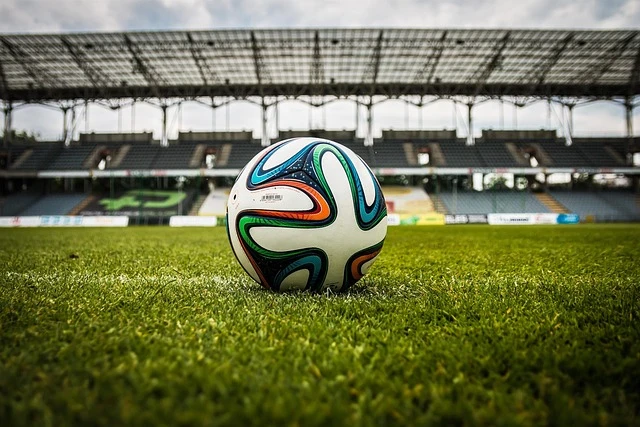
The Power of Sports: How Physical Activity Shapes Health, Character, and Society
Sports have been an essential part of human life for centuries. From ancient Olympic games in Greece to modern global tournaments like the FIFA World Cup and the Olympic Games, sports have united people, improved health, and built character. Whether it’s football, basketball, swimming, or running, engaging in sports offers numerous physical, mental, and social benefits that make it an indispensable aspect of a healthy lifestyle.

1. Physical Health Benefits of Sports
One of the most obvious advantages of participating in sports is improved physical fitness. Regular exercise strengthens the heart, improves lung capacity, and enhances muscle strength. Sports such as running, cycling, and swimming help increase cardiovascular endurance, while activities like weightlifting and gymnastics build muscular power and flexibility.
Moreover, sports help maintain a healthy body weight and reduce the risk of chronic diseases like obesity, diabetes, and hypertension. Studies show that athletes generally have lower cholesterol levels and stronger immune systems compared to sedentary individuals. By burning calories and improving metabolism, sports play a vital role in maintaining a balanced and active lifestyle.
2. Mental and Emotional Well-Being
Sports do not only strengthen the body—they also boost the mind. Regular physical activity releases endorphins, the “feel-good” hormones that reduce stress and anxiety. Athletes often experience better mental clarity, sharper focus, and improved memory.
Team sports, such as soccer or volleyball, teach important life skills like cooperation, communication, and leadership. Individual sports, like tennis or martial arts, build self-discipline and mental resilience. The mental health benefits of sports are now well-documented, showing reduced risks of depression and increased self-esteem among those who engage in regular physical activity.
3. Building Character and Life Skills
Participating in sports helps individuals develop a strong sense of discipline, responsibility, and sportsmanship. Training requires consistency, time management, and goal-setting—skills that are valuable in both personal and professional life.
Athletes also learn how to handle success and failure. Winning teaches confidence and pride, while losing fosters humility, patience, and motivation to improve. These lessons translate beyond the field, shaping individuals who can deal with real-world challenges effectively.
4. Social Connection and Teamwork
Sports bring people together regardless of age, gender, or background. Playing on a team promotes teamwork and mutual respect. It teaches individuals to value cooperation over competition and to trust others’ abilities.
Community sports programs also play an essential role in building social bonds. Children who play sports are more likely to develop strong friendships, avoid negative behaviors, and show higher levels of academic performance. For adults, joining a sports club or league can reduce loneliness and increase a sense of belonging.
5. The Role of Sports in Education
Schools and universities around the world recognize the importance of physical education. Students who participate in sports often perform better academically due to enhanced concentration and energy levels. Moreover, school sports teach leadership, time management, and team cooperation, preparing students for future careers.
Sports scholarships also provide opportunities for talented young athletes to pursue higher education, making sports not only a physical pursuit but also a pathway to success.
6. Sports and Society
Sports have the power to unite entire nations. Major events like the Olympic Games, World Cup, and NBA Finals bring millions of people together, celebrating diversity and global friendship. Sports transcend language, race, and religion, promoting peace, fair play, and equality.
In addition, the sports industry has become a major global economic force. From athletic apparel to media broadcasting, it generates billions of dollars annually and provides countless career opportunities in coaching, sports medicine, journalism, and management.
7. Technology and Modern Training
Modern athletes benefit from advanced sports technology that enhances performance and safety. Wearable fitness trackers, smartwatches, and biomechanical sensors help monitor heart rate, calorie burn, and muscle activity. Data analytics and video analysis also allow coaches to improve strategies and prevent injuries.
Moreover, innovations in sports nutrition and recovery techniques, such as cryotherapy and physiotherapy, have revolutionized how athletes train and perform.
8. The Importance of Fair Play and Ethics
While competition is a natural part of sports, maintaining fair play and integrity is crucial. Issues like doping, match-fixing, and poor sportsmanship can damage the reputation of athletes and the spirit of the game. Organizations such as the World Anti-Doping Agency (WADA) and the International Olympic Committee (IOC) work tirelessly to ensure that sports remain clean and ethical.
True champions are not only measured by their victories but also by their honesty, respect, and dedication to fair competition.
9. Sports for All Ages
Sports are not just for professional athletes; they are beneficial for everyone. Children develop coordination and confidence through play, while adults use sports to relieve stress and stay fit. Even seniors can enjoy low-impact activities like walking, yoga, or swimming to maintain mobility and prevent chronic diseases.
Regular participation in sports across all age groups contributes to a healthier and happier society.
10. Conclusion
In summary, sports are far more than just games—they are a way of life. They promote physical health, mental strength, teamwork, and social unity. In a world filled with stress and digital distractions, sports remind us of the value of discipline, connection, and human achievement.
Whether you are an athlete, a student, or simply a fan, embracing sports means embracing growth, vitality, and balance. As the saying goes: “A healthy body equals a healthy mind.” Sports give us both.
































